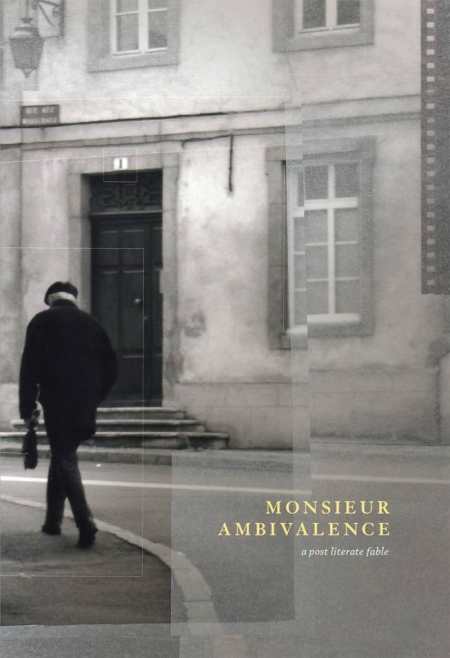Monsieur Ambivalence
A Post Literate Fable
With a unique pace and logic, the text provides a desirable space in which to consider any number of interesting ideas about solitude and connection.
Inspired by Blaise Pascal, a 17th-century philosopher best known for his posthumous book, Pensées (Thoughts), Thomas Fuller has written an accessible, experimental novel in a philosophical vein, incorporating a similarly fragmented form, and much of the sensibility that characterizes Pensées.
At the heart of Monsieur Ambivalence is Blaise Pascal’s assertion that the source of all human unhappiness can be traced to the fact that man cannot sit quietly in a room alone. With this in mind, the protagonist of our story travels with his girlfriend to a small village in France to live and attempt to sit alone in a room for an hour. Pascal’s book is his only literary companion on this journey, and the novel traces his the protagonist’s engagement with many of the ideas therein.
In the poetic, meandering prose that arises from this project, our narrator grapples with doubt, walks around the French countryside, observes the locals, naps, writes in a yellow notebook, meditates in churches, visits graveyards, avoids learning French, passes the time until he can open a bottle of wine, and converses with Helena, who “shows me things I’ve never seen” while he shows her his “seeing.” Instead of being pure distraction, each of these occupations serves as an organic opportunity for reflection and insight and is therefore a fine vehicle for the sometimes weighty ideas that anchor Fuller’s text.
Fuller has dispensed with a traditional story line and instead assembles a book comprised of compact, often impressionistic vignettes with subheadings like “Our Village, Exactly as I Remember It,” “The Things You Have To Do To Be Human,” and “Always Walk Back a Different Way Than You Came.” On the challenge of finding a desirable balance between social life and solitude, the narrator observes, “It’s much easier to be alone here, though when I’m alone I often long to be with others and with others I’m always happiest when they leave, less interested in others than I ever was.” This is followed by a poem-like fragment intended for his girlfriend: “—our loneliness / lasts a long time / and we can never / outlive it.”
In some ways, this book reads like a personal travelogue, set as it is in France and told through the eyes of an American abroad. The real setting, however, is one man’s mind as mediated by Pascal’s ideas, lending shape and heft as well as layers of meaning. Also included in the book are plentiful black-and=white photographs depicting many of the scenes in the story.
The imagination at work in these pages is candid, self-reflexive, and often humorous; it’s also poetic and philosophical and will suit readers who already appreciate being provoked to thoughtfulness while they read. It happens naturally, perhaps like the conversation between Monsieur Ambivalence and a neighbor, Jean-Claude: “I can’t remember who spoke first, who began the relationship. It was like cream entering coffee.”
Reviewed by
Holly Wren Spaulding
Disclosure: This article is not an endorsement, but a review. The publisher of this book provided free copies of the book to have their book reviewed by a professional reviewer. No fee was paid by the publisher for this review. Foreword Reviews only recommends books that we love. Foreword Magazine, Inc. is disclosing this in accordance with the Federal Trade Commission’s 16 CFR, Part 255.

